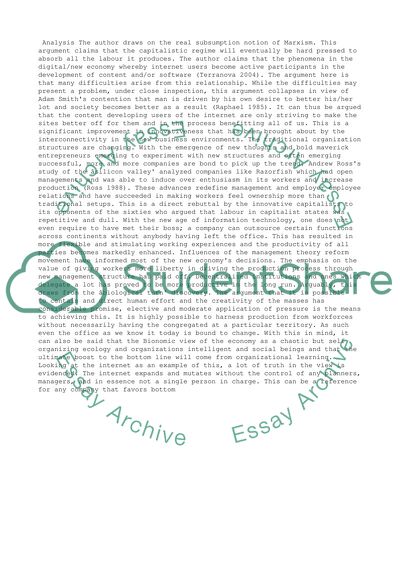Cite this document
(“Management Society and new forms of work Essay Example | Topics and Well Written Essays - 1000 words”, n.d.)
Management Society and new forms of work Essay Example | Topics and Well Written Essays - 1000 words. Retrieved from https://studentshare.org/management/1459721-management-society-and-new-forms-of-work
Management Society and new forms of work Essay Example | Topics and Well Written Essays - 1000 words. Retrieved from https://studentshare.org/management/1459721-management-society-and-new-forms-of-work
(Management Society and New Forms of Work Essay Example | Topics and Well Written Essays - 1000 Words)
Management Society and New Forms of Work Essay Example | Topics and Well Written Essays - 1000 Words. https://studentshare.org/management/1459721-management-society-and-new-forms-of-work.
Management Society and New Forms of Work Essay Example | Topics and Well Written Essays - 1000 Words. https://studentshare.org/management/1459721-management-society-and-new-forms-of-work.
“Management Society and New Forms of Work Essay Example | Topics and Well Written Essays - 1000 Words”, n.d. https://studentshare.org/management/1459721-management-society-and-new-forms-of-work.


